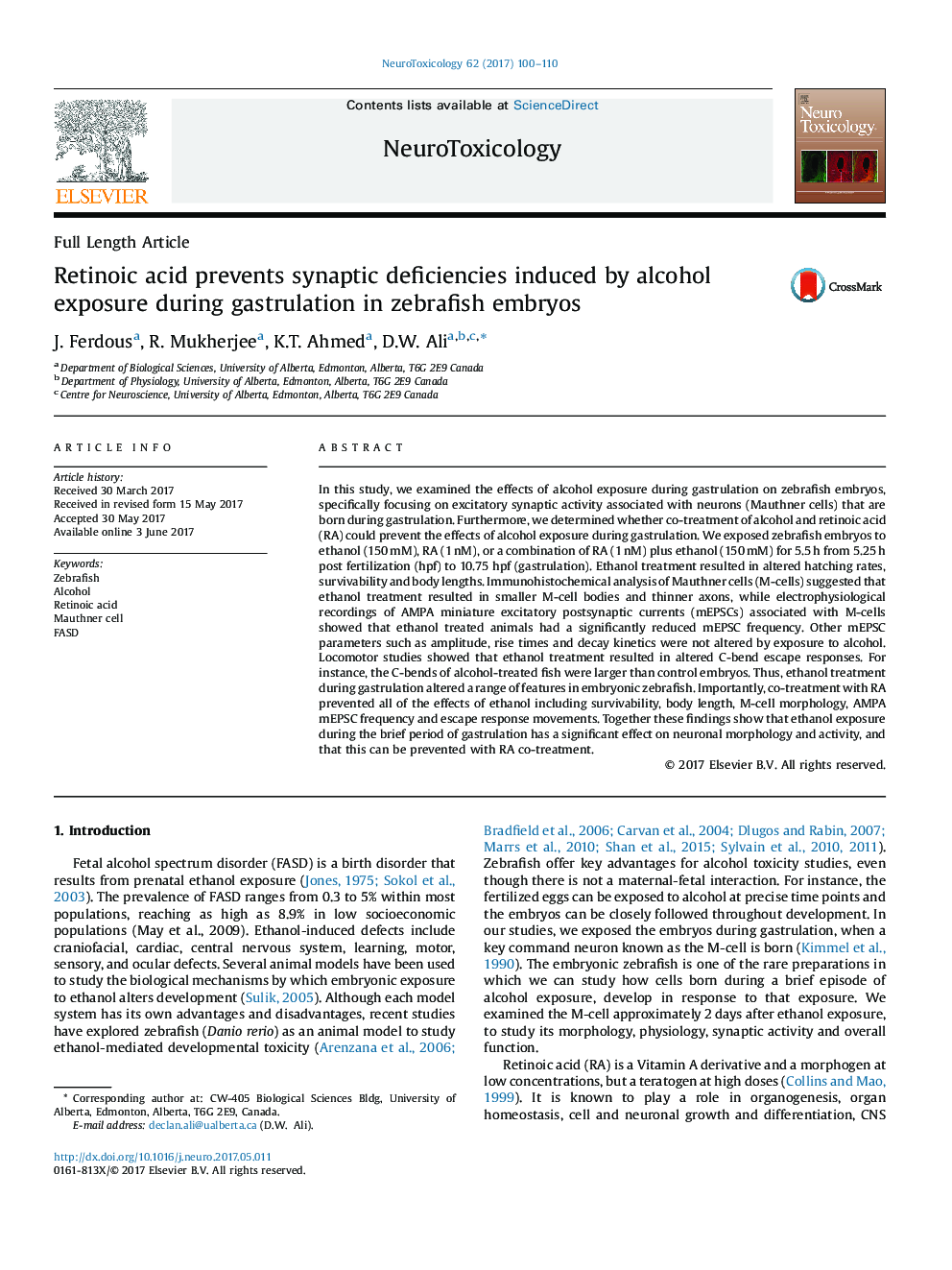| کد مقاله | کد نشریه | سال انتشار | مقاله انگلیسی | نسخه تمام متن |
|---|---|---|---|---|
| 5560793 | 1562032 | 2017 | 11 صفحه PDF | دانلود رایگان |
- Zebrafish embryos were exposed to ethanol or a combination of ethanol and Retinoic Acid during gastrulation.
- Exposure to ethanol led to a reduction in excitatory synaptic activity associated with Mauthner cells.
- Co-treatment with Retinoic Acid (1Â nM) prevented the effects of alcohol.
In this study, we examined the effects of alcohol exposure during gastrulation on zebrafish embryos, specifically focusing on excitatory synaptic activity associated with neurons (Mauthner cells) that are born during gastrulation. Furthermore, we determined whether co-treatment of alcohol and retinoic acid (RA) could prevent the effects of alcohol exposure during gastrulation. We exposed zebrafish embryos to ethanol (150Â mM), RA (1Â nM), or a combination of RA (1Â nM) plus ethanol (150Â mM) for 5.5Â h from 5.25Â h post fertilization (hpf) to 10.75 hpf (gastrulation). Ethanol treatment resulted in altered hatching rates, survivability and body lengths. Immunohistochemical analysis of Mauthner cells (M-cells) suggested that ethanol treatment resulted in smaller M-cell bodies and thinner axons, while electrophysiological recordings of AMPA miniature excitatory postsynaptic currents (mEPSCs) associated with M-cells showed that ethanol treated animals had a significantly reduced mEPSC frequency. Other mEPSC parameters such as amplitude, rise times and decay kinetics were not altered by exposure to alcohol. Locomotor studies showed that ethanol treatment resulted in altered C-bend escape responses. For instance, the C-bends of alcohol-treated fish were larger than control embryos. Thus, ethanol treatment during gastrulation altered a range of features in embryonic zebrafish. Importantly, co-treatment with RA prevented all of the effects of ethanol including survivability, body length, M-cell morphology, AMPA mEPSC frequency and escape response movements. Together these findings show that ethanol exposure during the brief period of gastrulation has a significant effect on neuronal morphology and activity, and that this can be prevented with RA co-treatment.
Journal: NeuroToxicology - Volume 62, September 2017, Pages 100-110
